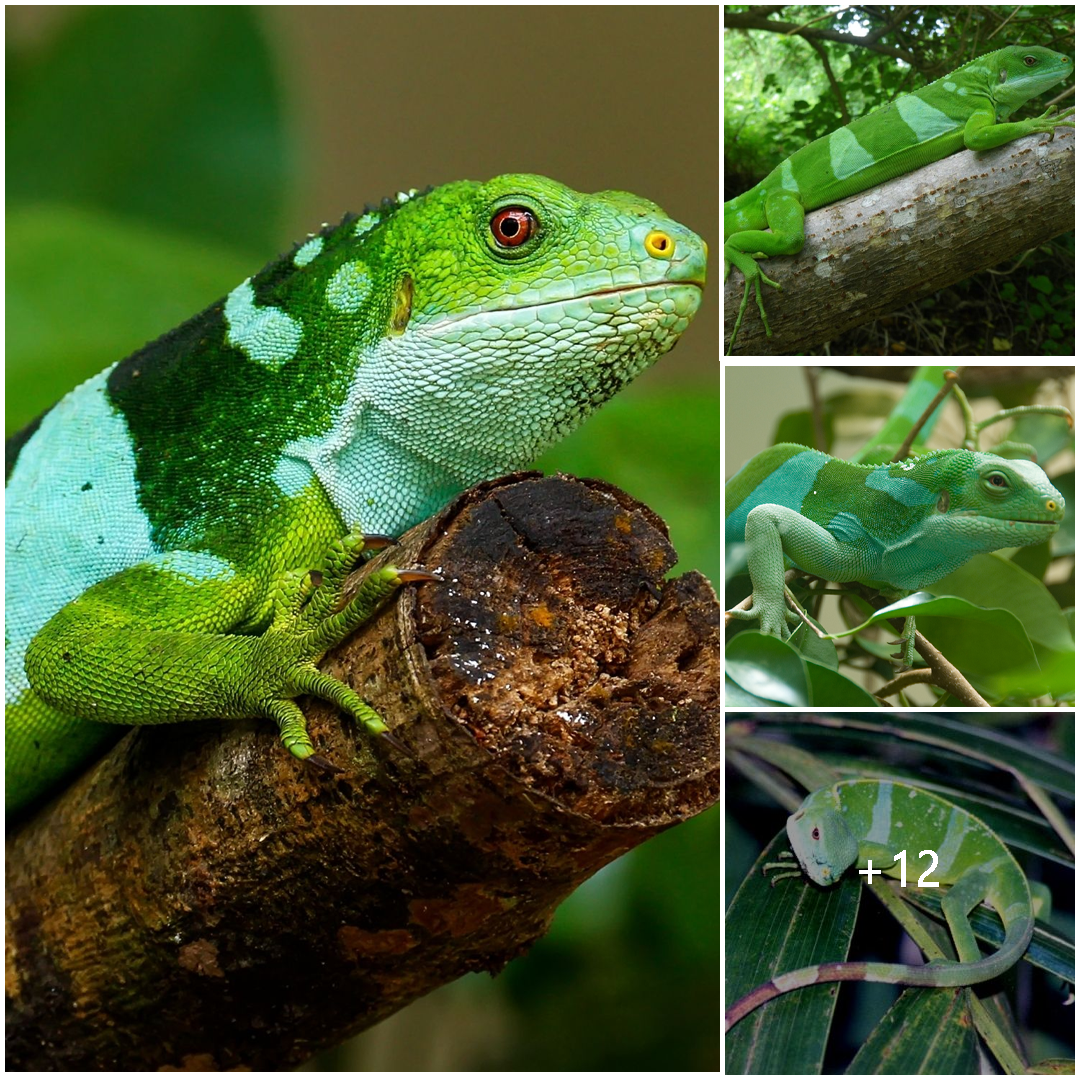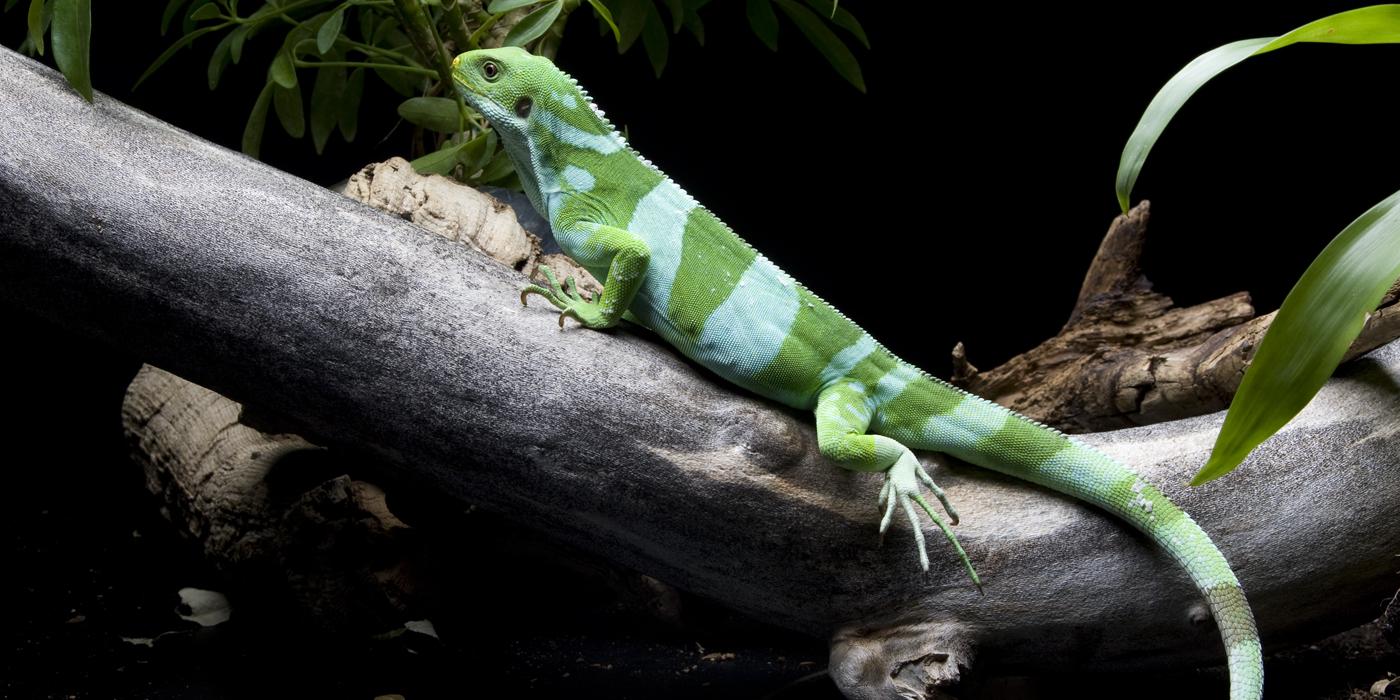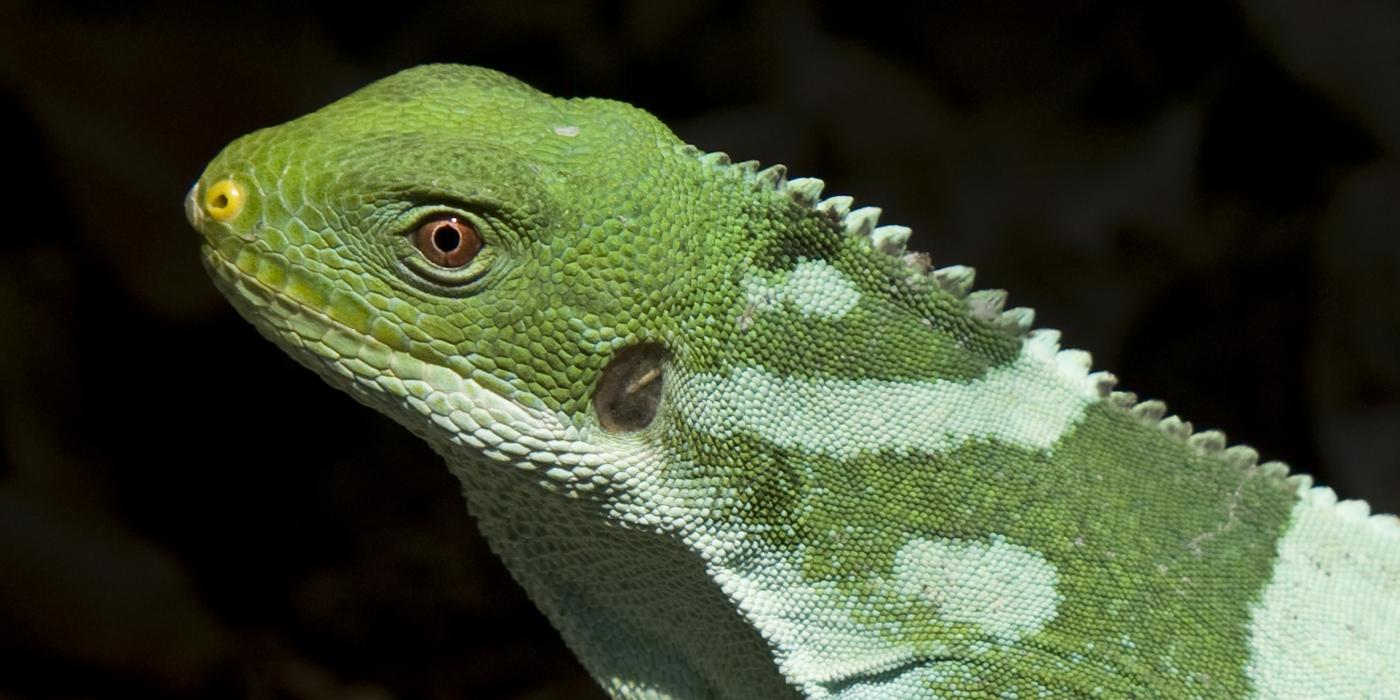
The Enigmatic Beauty of the Fiji Banded Iguana
The Fiji Banded Iguana (Brachylophus fasciatus) stands as a testament to the rich biodiversity and unique ecosystems of the Pacific Islands. Endemic to the tropical forests of Fiji, this striking reptile captivates the imagination with its vibrant colors, intricate patterns, and intriguing behaviors. In this article, we delve into the fascinating world of the Fiji Banded Iguana, shedding light on its appearance, habitat, conservation status, and the efforts being made to protect this iconic species.
Appearance and Characteristics: One of the most distinctive features of the Fiji Banded Iguana is its remarkable coloration and markings. Adorned with vivid hues of green, turquoise, and blue, interspersed with bold black bands and stripes, this iguana species is a true marvel of nature. Adult males often exhibit more prominent coloration and larger size compared to females, with striking jowls and dewlaps used for territorial displays and courtship rituals. The intricate color patterns serve both as camouflage in the dense foliage of Fiji’s forests and as visual signals to communicate with conspecifics.

Habitat and Distribution: The Fiji Banded Iguana is endemic to the islands of Fiji, where it inhabits a variety of forested habitats, including rainforests, mangrove swamps, and coastal scrublands. These iguanas are well adapted to arboreal life, spending much of their time climbing trees, basking in the sun, and foraging for food among the canopy. Despite their limited range, Fiji Banded Iguanas have demonstrated resilience in the face of habitat disturbance and have been observed thriving in both natural and human-modified environments.
Behavior and Ecology: Fiji Banded Iguanas are primarily herbivorous, feeding on a diverse diet of leaves, flowers, fruits, and other plant matter. They are diurnal by nature, meaning they are most active during the day, when they can be seen sunning themselves on tree branches or foraging for food in the dense foliage. These iguanas are solitary creatures for much of the year, only coming together during the breeding season to mate and reproduce. Courtship rituals often involve elaborate displays of color, posture, and movement, as males compete for the attention of females.
Conservation Status: Despite their captivating beauty, Fiji Banded Iguanas face numerous threats to their survival, including habitat loss, invasive species, and illegal collection for the pet trade. As a result, the species is listed as Endangered on the International Union for Conservation of Nature (IUCN) Red List of Threatened Species. Conservation efforts focused on habitat protection, invasive species control, captive breeding, and community education are crucial for ensuring the long-term survival of this iconic reptile species and preserving its genetic diversity for future generations.

Conclusion: The Fiji Banded Iguana serves as a shining example of the unique and irreplaceable biodiversity found within Fiji’s tropical forests. With its stunning colors, intricate patterns, and fascinating behaviors, this iconic species is a testament to the wonders of evolution and the importance of conservation efforts to protect our planet’s natural heritage. By raising awareness, supporting conservation initiatives, and advocating for the protection of its habitat, we can ensure that the Fiji Banded Iguana continues to thrive in the wild for generations to come.





